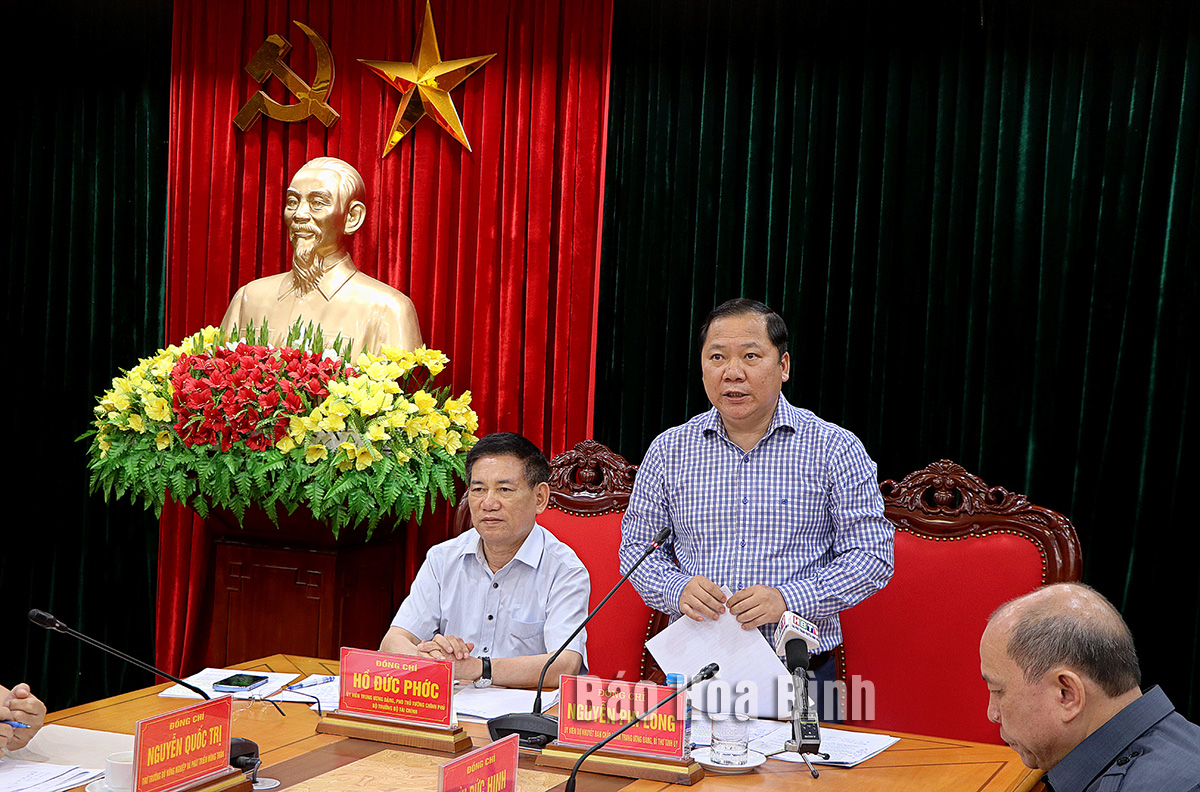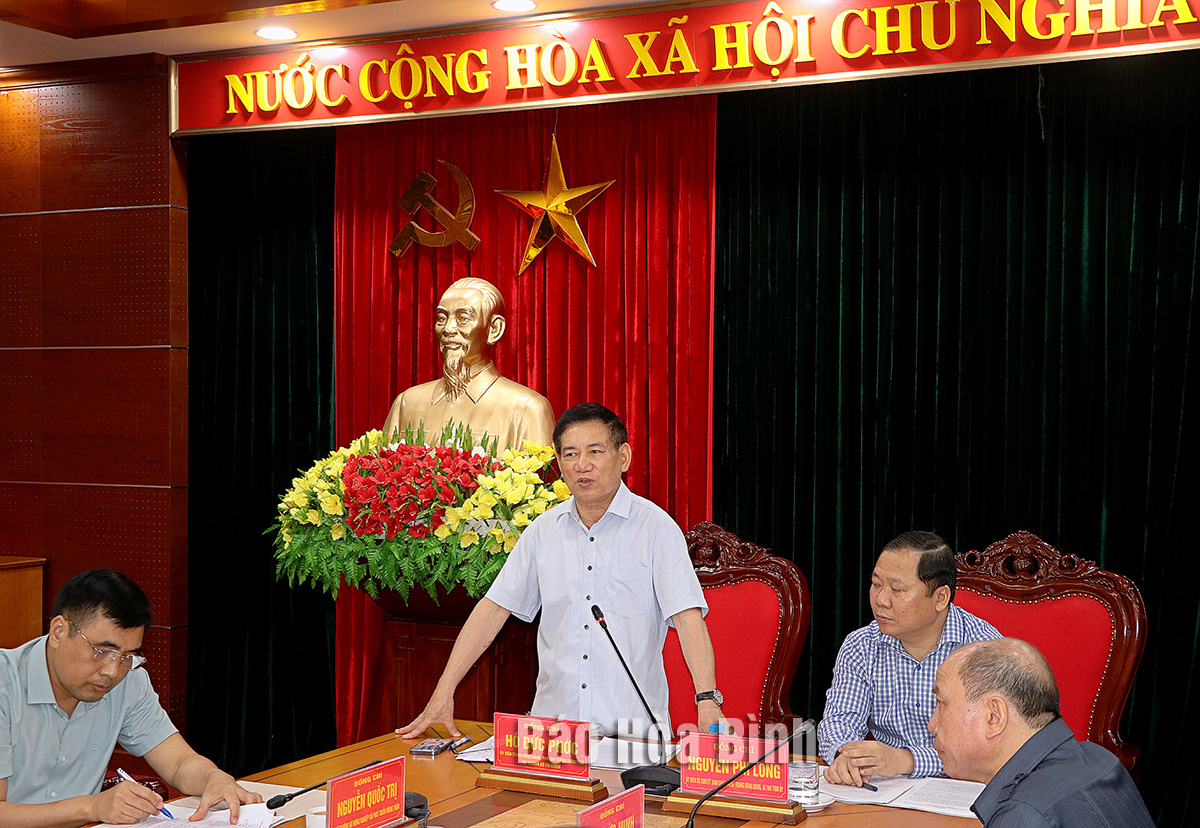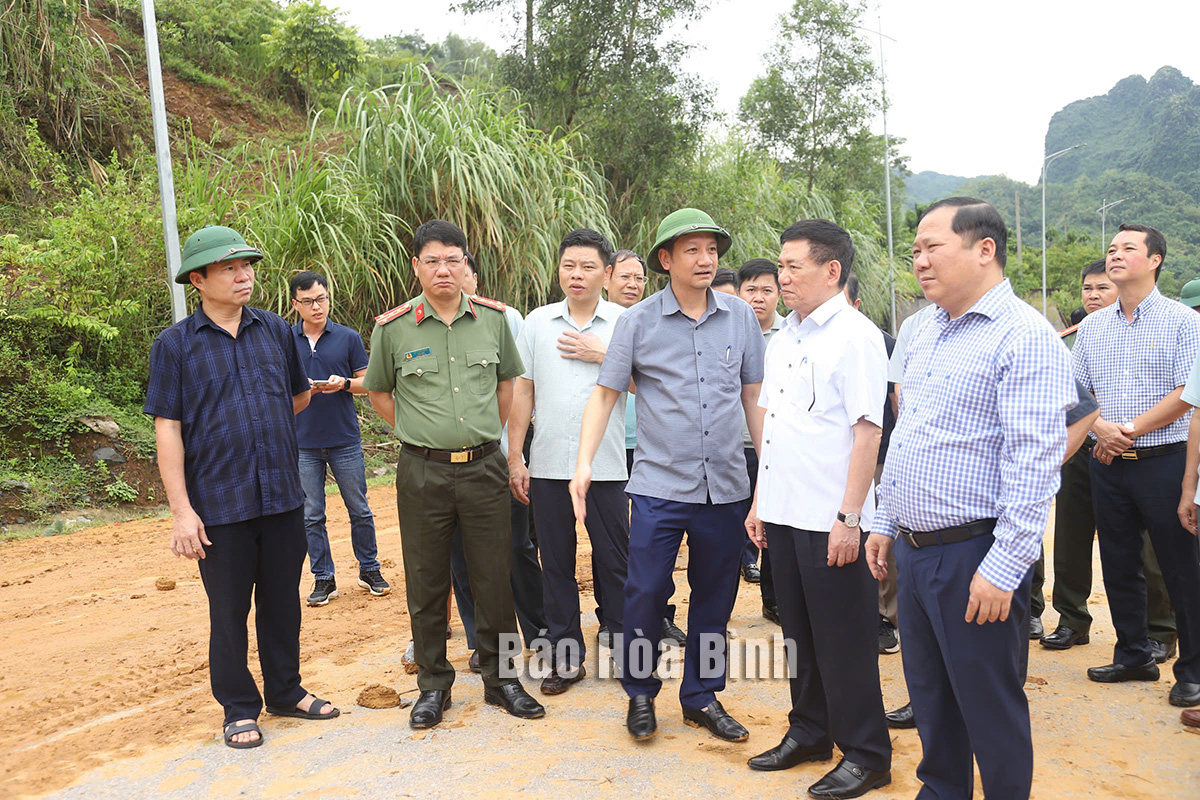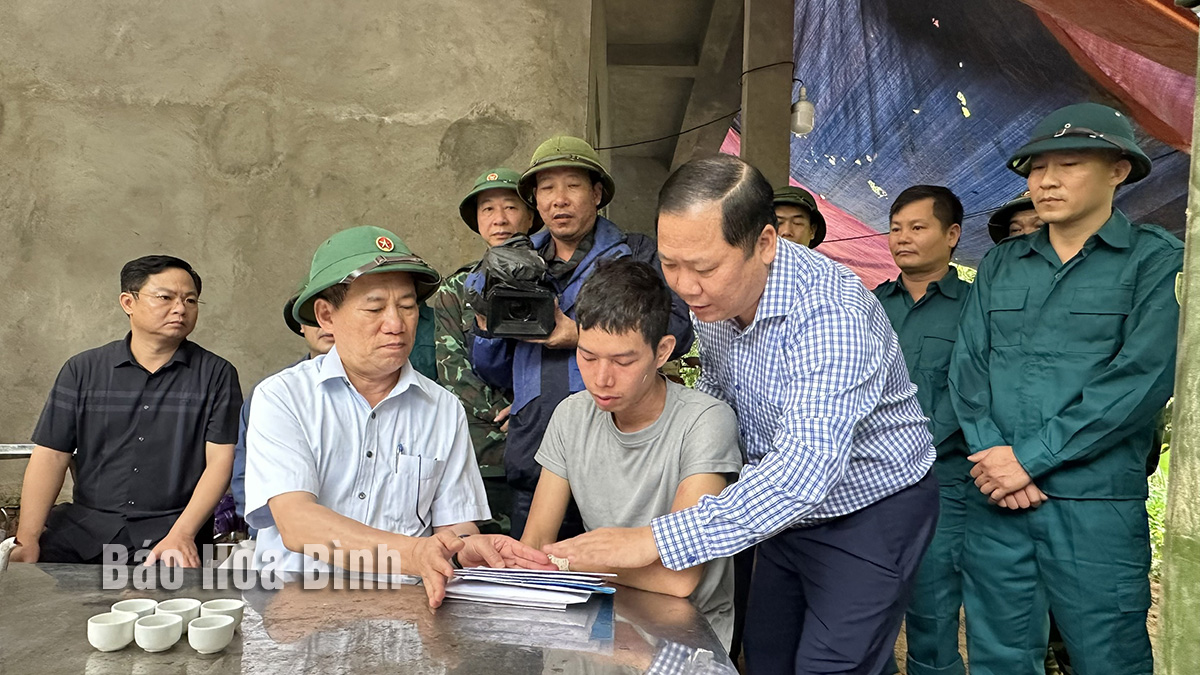
A delegation of the Government led by Deputy Prime Minister and Minister of Finance Ho Duc Phoc had a working session with Hoa Binh province on September 8 to look into the settlement of Typhoon Yagi’s consequences. Local officials at the event included Nguyen Phi Long, alternate member of the Party Central Committee and Secretary of the provincial Party Committee; Bui Duc Hinh, Standing Vice Secretary of the provincial Party Committee and Chairman of the provincial People’s Council; Bui Van Khanh, Vice Secretary of the provincial Party Committee and Chairman of the provincial People’s Committee; and heads of departments, sectors, and localities.
The provincial People’s Committee reported that
from 7pm on September 6 to noon of September 8, four people died and one was
injured due to landslides triggered by heavy rain and whirlwind in Cham hamlet
of Tan Minh commune, Da Bac district. Meanwhile, 146 households were affected
and 1,228 had to evacuate to safer places.
Up to 1,488.9ha of agricultural and forestry
land was devastated. Landslides and erosion were recorded at 22 locations along
local roads.
Nguyen Phi Long, alternate member of the Party Central Committee and Secretary
of the provincial Party Committee, speaks at the working session.
Addressing the event, Long said the province is
ordering its localities to promptly settle losses and ensure life and property
safety for people; clean up educational establishments and ready conditions for
students to return to school; and restore technical infrastructure, especially
roads and power lines, to ensure no areas are isolated or out of contact.
He noted that 135 residential areas with 6,000
households are facing high natural disaster risks and need to be resettled.
The Secretary proposed the Government consider
assistance for Hoa Binh to evacuate and resettle residents in vulnerable
places, provide financial aid for building resettlement areas for 1,452
households to guarantee their life and property safety, and give financial
support for repairing damaged transport infrastructure facilities. He also
called for help with setting up disaster and landslide warning stations in the
areas susceptible to natural disasters in the province.
Deputy PM Ho Duc Phoc addresses the working session.
Concluding the meeting, Deputy PM Phoc highly
valued local leaders’ performance in coping with Typhoon Yagi and asked Hoa
Binh to quickly settle its consequences.
In particular, the province needs to invest
efforts in rescuing victims and restoring power lines, the telecommunications
network, schools, and hospitals as soon as possible so that people can
stabilise their life and resume production and business activities. It also
needs to immediately rehabilitate collapsed houses and help local residents
return to their daily life soon.
Additionally, the Deputy PM requested Hoa Binh
step up landslide prevention efforts, consider building resettlement areas for
the people displaced by landslides, and immediately deal with landslide-prone
sites.
Regarding the province’s proposals, he demanded
ministries and central sectors, basing on their functions and tasks, devise and
submit solutions to the Government.
Deputy PM Ho Duc Phoc, Secretary of the provincial Party Committee Nguyen Phi
Long, and delegates examine some landslide-hit places on Road 433 in Hoa Binh
commune of Hoa Binh city.
Prior to the meeting, the delegation of the
Government and the provincial Party Committee, People’s Council, People’s
Committee, and Vietnam Fatherland Front Committee examined losses caused by
Typhoon Yagi in Da Bac district. They also visited and offered encouragement to
Xa Van Som, a resident in Cham hamlet of the district’s Tan Minh commune, who lost
four of his family members in a flood-triggered landslide.
Deputy PM Ho Duc Phoc and Secretary of the provincial Party Committee Nguyen
Phi Long present relief to a representative of a landslide-hit family in Cham
hamlet of Tan Minh commune, Da Bac district.
Deputy PM Phoc and Hoa Binh province
respectively presented aid worth 50 million VND and 75 million VND to Som to
help his family build a new house and stabilise their life.
The Standing Board of the Hoa Binh provincial Party Committee has agreed in principle on a proposal by the Standing Board of the Party Committee of Hoa Binh city to gather feedback on the city’s 1:2000 zoning plan, which forms part of its broader urban development strategy.
Hoa Binh province has made notable progress in public administration reform and digital government development, with the satisfaction index among citizens and businesses reaching over 84%, according to recent government evaluations.
Thanks to great efforts by local authorities in recent times, the governance and public administration performance of Mai Chau district has been significantly improved.
In the afternoon of June 6, the Party Committee, the People's Council, the People's Committee and the Fatherland Front of Lac Son district solemnly held a meeting to celebrate the 139th anniversary of the district's founding (1886–2025) and the 79th anniversary of the establishment of the district's Party Committee (1946–2025). There was the attendance of Mr. Bui Van Thang, the Vice Chairman of the Provincial People's Council; Mr. Quach Tat Liem, the Vice Chairman of the Provincial People's Committee; Ms. Dang Bich Ngoc, the Deputy Head of the National Assembly Delegation of the province; as well as the former leaders of the province and district through various periods, who are the natives of the district.
Implementing the Politburo’s Resolution No. 57-NQ/TW on breakthroughs in science – technology, innovation, and digital transformation is a golden opportunity for the northern mountainous province of Hoa Binh to renew growth model, improve competitive edge and shorten digital gap.
Resolution 57-NQ/TW, issued by the Politburo on December 22, 2024, identifies sci-tech, innovation, and digital transformation as strategic breakthroughs to build a developed and prosperous nation. In Hoa Binh province, this spirit is not just a slogan, it’s being put into action through concrete initiatives that form a "new development triangle”: digital citizenship, digital economy, and digital administration.






